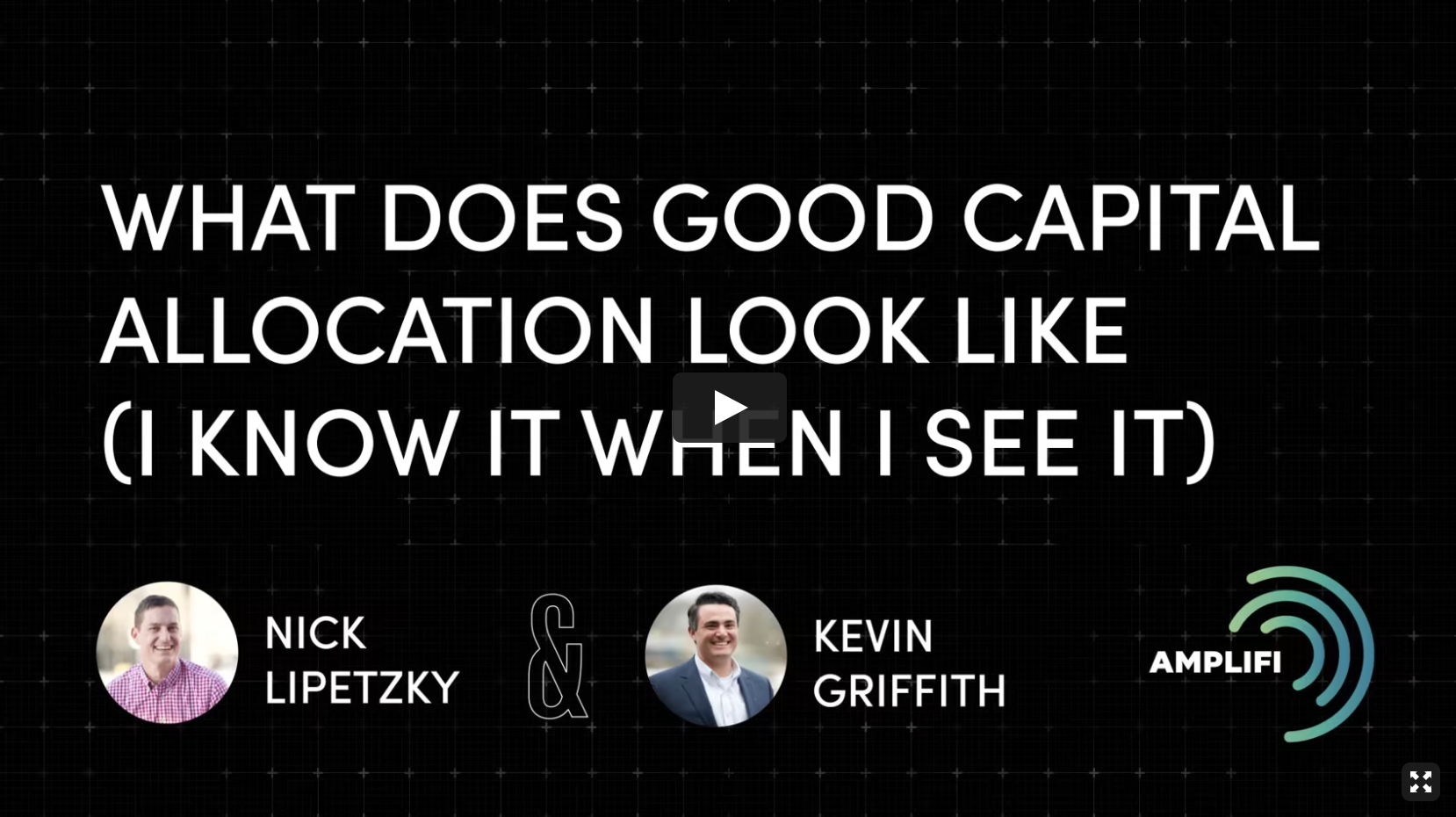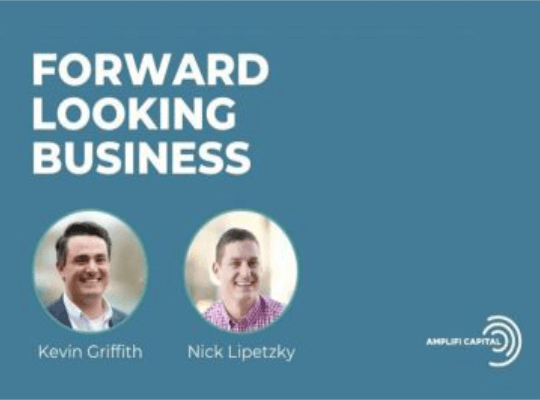What Does Good Capital Allocation Look Like?
How to Build a Seamless Web of Deserved Trust that Directs Capital Allocation
Billionaire investor Charlie Munger offered the idea of “The Seamless Web of Deserved Trust” as the defining characteristic of success a group of people can achieve. But what does a seamless web of deserved trust even mean? We know that in life, having trust in others makes for healthy, high-functioning relationships. Sports teams, school projects, and government councils all operate at their best when their members trust each other to accomplish a unifying goal. The same idea applies to businesses of all sizes and the level of trust needed for true success.
Both Munger and Warren Buffet have touted the importance of hiring people of good character and stressed the importance of building a company culture on the foundation of a unified vision. These are all ideas that we like to embrace in theory, but how does it look in practice? And where does capital allocation come into play? In a conversation with AmpliFi Capital’s Co-founders Kevin Griffith and Nick Lipetzkey, we can gain a little insight into what a company that is operating as a Seamless Web of Deserved Trust looks like and what it means for capital allocation.
The Stages of Business Success
Before diving into what the seamless web of deserved trust looks like in a business setting, we need to understand the stages of development that come before it. Consider the seamless web of deserved trust the end state of a successful business.
Organization
This is the stage in which CEOs are piecing together a bigger-picture vision. They should be able to define what the business does, how employees will contribute to the vision.
Clarification
At this point, the CEO understands the vision of the company and how the entire team can work together. All employees should share this understanding of their role within the company and how things need to evolve.
Execution
This stage is achieved once everyone is unified in a goal and understands their own contribution toward the company. All employees can act with discipline and aren’t just doing work for the sake of doing work—everything needs to be in alignment with the larger strategy and done with great discipline. At this stage, the CEO doesn’t need to be as involved in the day-to-day operations; instead, they need to continue to reinforce the vision of the company and ensure everyone remains on the same page.
Once your business is simplified and operates efficiently with everyone working toward a common goal, you have reached a seamless web of deserved trust.
The Role of the CEO in the Seamless Web of Deserved Trust
A CEO should be the one defining the goals of the organization and communicating them throughout the company. While they may have a role in day-to-day operations, eventually, the idea of the web of trust is to have a leadership and management team equipped to make important decisions that are aligned with the company’s vision. You never want to have one person making all the big decisions—knowing that you have people within the organization that you trust to make these decisions is a sign of a thriving culture.
Take Warren Buffet and Charlie Munger, two people at the head of Berkshire Hathaway, for example. Their responsibilities? Hiring trustworthy people and managing capital allocation. In their carefully cultivated environment of trust, Buffet is enabled to make the decisions that have led Berkshire Hathaway to be one of the most successful corporations in the US.
The Principles of Capital Allocation & the CEO
The idea of the seamless web of deserved trust meets the principles of capital allocation through thoughtful and informed management. Obviously, Berkshire Hathaway is an enormous example. And Buffet’s extremely centralized business model that has him allocating capital won’t work for every business—but it does speak to the power of the seamless web of deserved trust. Without having a network of trusted managers and leadership to support the business, the corporation wouldn’t be able to adapt or grow in the midst of an ever-changing marketplace.
Build a Seamless Web of Deserved Trust for Nimble Reactions
The CEOs who have successfully developed a web of trust within their organizations will be much more equipped to react to unpredictable events in the market. Think back to March of 2020. Nobody was prepared for the volatility and disruption of COVID-19. Organizations with seamless webs of deserved trust baked into their culture were in a position to recover in a matter of weeks. Why? Having the whole team on board with a unified and ready to adapt in a moment’s notice meant CEOs could easily steer the ship by deciding what happens with the budget, how dollars move and where the business goes. Successful CEOs didn’t have to make every decision, but they knew how the organization underneath them worked which made all the difference.
In an environment of trust, CEOs are enabled to use budgets as a tool for implementing change, driving initiatives, with help of the CFO (or outsourced/interim CFO). The CFO can isolate the business drivers and identify revenue and cost drivers, but the CEO is responsible for the outcome.
So, how do you know where your business stands?
Now that you know what a seamless web of deserved trust can mean for your business, assess what your current state is. Can you articulate your vision to yourself in ten seconds? Can you list your business’s drivers off the top of your head? Can your employees name the vision of the company? If your thoughts aren’t organized, then your management team will be lost as well. Your people are your best assets, and they’re your best indication for where your business is at right now. The better equipped you are with an organized, well-executed vision, the better equipped your employees will be.
If you need clarity from an outsider’s perspective but don’t want to take on the cost of hiring a CFO or internal finance team, you may want to consider outsourcing CFO services. Gain a forward-focused strategy that aligns your employees with your vision and see how it can push you toward a more profitable future.





